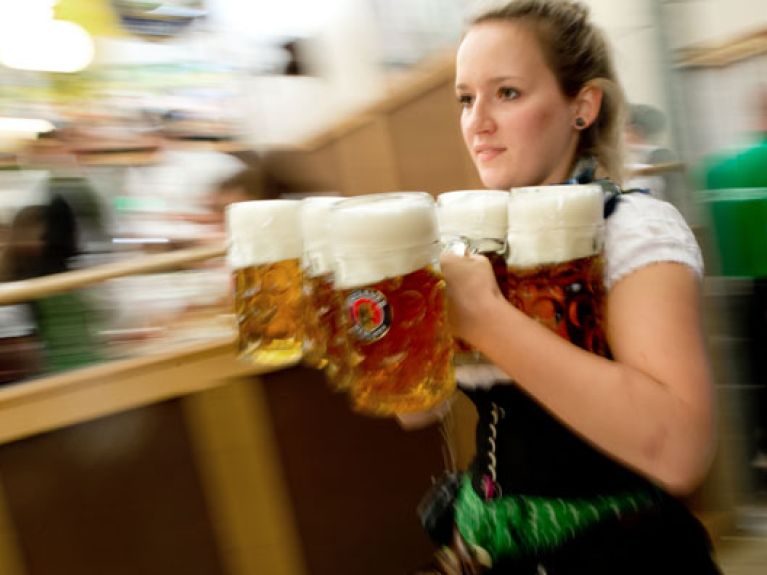The Germans and their diet
Meat, potatoes and beer – what is the truth behind the clichés about German eating and drinking habits?

As is often the case with clichés, they may be a grain of truth in them, but ultimately they are still clichés – rehearsed for years and confirmed by powerful images like the Munich Oktoberfest. But pork hocks and litre tankards of beer aren’t part of an average person’s daily menu in Germany.
In fact Germany isn’t even in the world’s top ten when it comes to eating meat. The USA heads the rankings with 120 kilograms per person per year. Germany manages 88 kilograms. And the trend is falling. Per-capita consumption fell by two kilos in 2013. More and more people are looking at the quality of the meat; in case of doubt they would rather pay more and consume less. At the same time, there is a growing group of people who renounce meat and prefer a vegetarian or vegan diet. A heightened awareness of breeding conditions and production methods goes hand-in-hand with the desire for a healthy lifestyle.
Water instead of beer
The thing about beer also needs correcting. Germans aren’t world champions in this field; they’re not even European champions. That distinction goes to the Czechs, who drink an average of 144 litres a year. The Germans are lagging behind with an annual per-capita consumption of 107 litres. And consumption is falling at the rate of about two litres per person per year. Instead, the Germans are turning more and more to mineral water, of which they drink almost 150 litres every year. The Germans can’t even maintain their image as “potato kings”. They eat about 60 kilograms a year, which is no comparison to Russia (250 kilos) or Ukraine (200 kilos). Bringing up the rear in the consumption rankings is, in fact, South America, where the potato originally came from.
Anuga food fair from 10 to 14 October 2015 in Cologne
